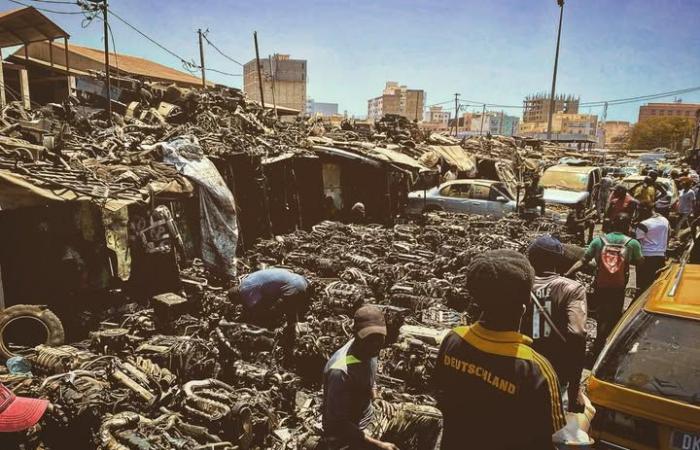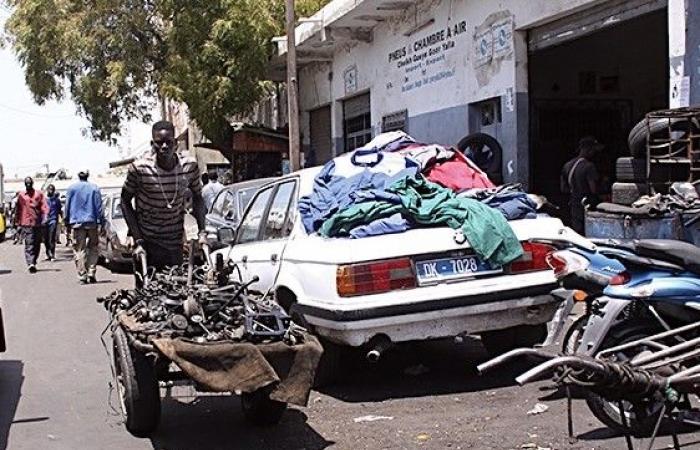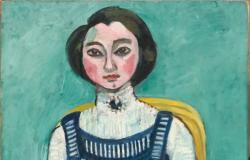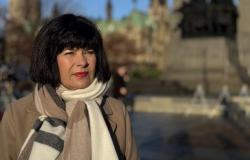In the heart of Dakar, “Du Foncier” or “Difoncé” stands out as the largest automobile spare parts market. This place, a real crossroads of economic activities next to Petersen station, is the scene of a unique ecosystem. Craftsmen and traders compete in creativity to meet the needs of motorists. Between recycling, repair and import, “Difoncé” offers everything.
The “Crédit régional” market, commonly known as “Difoncé”, is much more than a simple place to trade automobile spare parts. Nestled in the heart of the Dakar Plateau district, behind the Great Mosque, this place is a teeming hive where artisans and traders mingle to breathe a second life into vehicles. This mecca of Senegalese economic activity is a world where mechanics, recyclers, sellers and simple curious people meet.
Along the street adjacent to Petersen’s garage, spare parts stores and repair shops line up, forming a veritable Ali Baba’s cave for motorists. Here, the street is littered with puddles of blackish oil and cluttered with vehicles with open hoods, scattered spare parts and freshly unloaded containers.
On this Saturday afternoon, New Year’s Eve, the excitement is at its height. Modou Lô, a “recycling genius” leaning against the wall of a nearby gas station, embodies the ingenuity of these artisans. “No matter the condition of the headlights that are brought to me, I always find a way to repair them,” he confides, handling rudimentary tools.
Repairers like Pierre Goudiaby and Modou Lô breathe new life into otherwise unusable parts. Pierre, who specializes in repairing car lights, uses a stove to carefully weld and polish the broken pieces. “Some fires cost between 80,000 and 150,000 FCFA, but here, we repair them for only 30,000 FCFA,” he explains. As for Ibrahima Diallo, an experienced sheet metal worker, he testifies to his loyalty to Modou: “Despite the distance from my workshop which is in Yoff, I prefer to come here for the quality of the work”. This confidence demonstrates the central role of artisans in the local economy.
From recycling parts to selling them, “Difoncé” is full of activities. Scrap dealers like Bassirou Niang collect the materials to resell them, while traders like Lamine Dieng offer engines from various brands, such as Mitsubishi, Toyota, Peugeot, at prices ranging between 2.5 and 3.5 million FCFA.
A crossroads for all automotive-related activities
However, Lamine notes a gap: parts for electric vehicles remain rare, due to a lack of specialized technicians. “The majority of drivers do not yet use electric vehicles,” he notes.
Despite

Despite the challenges, their energy and their resilience, they do not weaken. The refuge zone of “Gorgorlus”, these Senegalese who manage with little to meet their needs. Babacar Diop, a seller of imported parts, praises the importance of these repairers who “make accessible objects out of reach for many”. “Difoncé” remains a place of creativity and ingenuity. With more support, it could become a real hub of automotive innovation in West Africa. In the meantime, Modou and his colleagues continue to transform used objects into miracle solutions, fueling the local economy and meeting the needs of the most modest.
Daouda DIOUF







